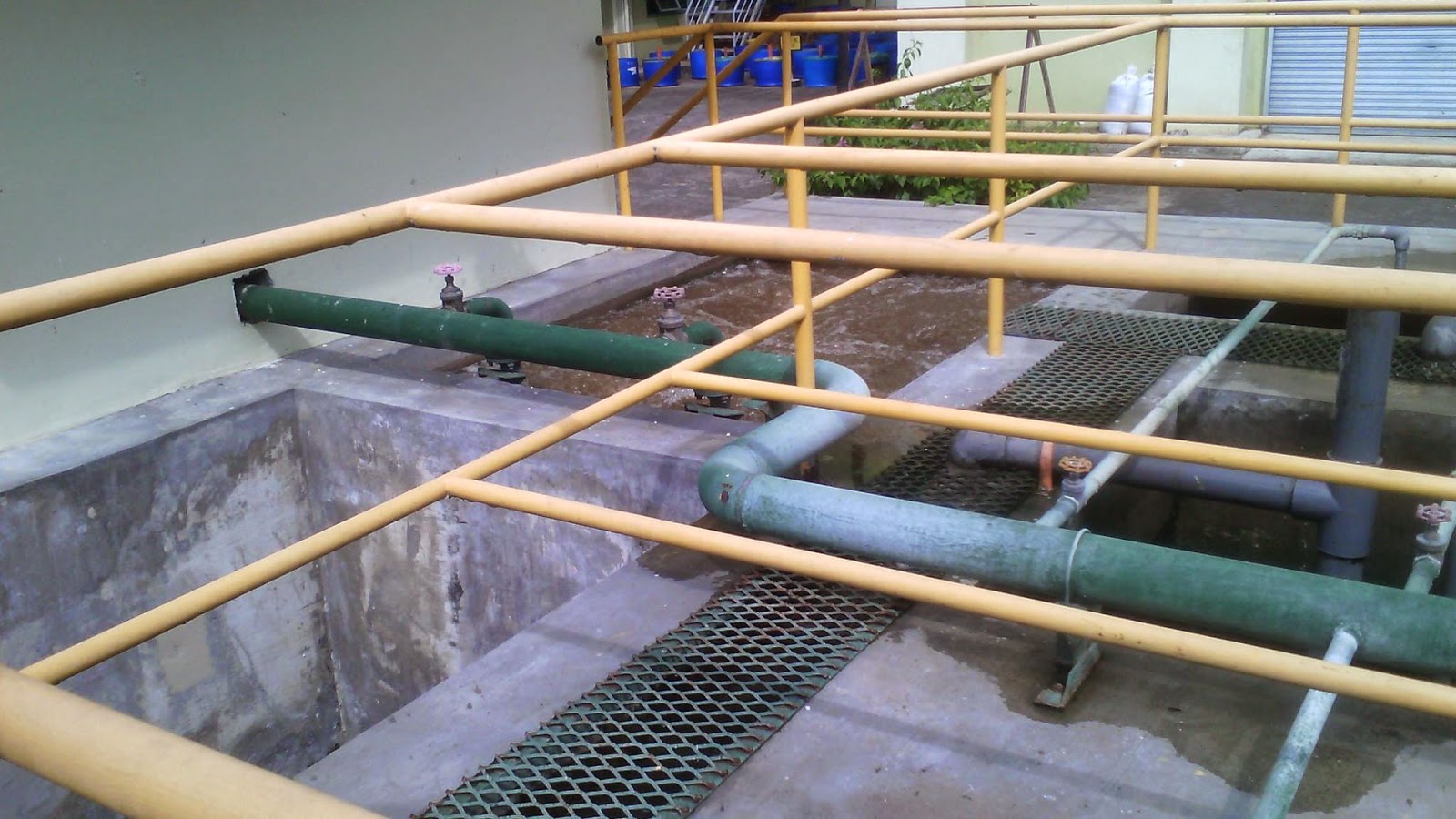On the 11th day of January 20, 2015 at 12:30 pm,
we visited the Sewage Treatment Plant (STP) in De La Salle University-Dasmarinas (DLSU-D). The
STP in DLSU-D began operating since 2013 way back when the place is not a
sewage treatment and happened to be a cafeteria before that time. It was first
tested in 2012, using fishes to test if the water is clean and good enough.
Since the test end up in great result the STP continue their operation in
maintaining the campus clean. Now STP is at its level 3.
GETTING TO KNOW Sewage Treatment Plant
A sewage treatment is a process of removing and separating
contaminants from the water. It cleans the water before disposing it to the
river. DLSU-D is a campus with 57 hectares, which is surely provides a lot of
wastewater. As a solution on how to dispose this waste without a treat to the
environment they provide their own Sewage Treatment Plant that is in charged to
maintain the wastewater disposal in the campus.
Before you visit the STP in the campus, this is what you are
going to see which is located at the back of the old College of Engineering,
Architecture and Technology building. Before entering the STP you might
encounter a greenhouse where various plants are planted and rat house where
white rats are place and used by Human Biology Student in their experiments.
You can also see some plants hanging in front of the
greenhouse. The great thing about these plants is that they are planted in
plastic bottles which are a great example of recycling. It is a great way of
helping the environment in maintaining it clean.
PROCESS OF Sewage Treatment Plant (STP)
The first process in STP is called the sludge collection. It
is in charged in collecting waste from all the comfort rooms and other places
in the campus that release wastewater. This machine stops working every 15
minutes to give time for the machine to avoid clogging in the pipes.
Aeration is what you call in the next process after the
sludge collection. This is a way of aerobic decomposition to remove the smell
from the wastewater. This is a way of putting air or gas into the liquid to
remove the odor of the wastewater.
Aside from waste water from all the comfort rooms in the
campus, kitchen waste water like cooking oil goes to solidifies stage where it
is solidified and brought back to the first stage to dissolve the contaminants
properly.
After all this process the water goes through this final
stage where water is poured by chlorine so it would be clean before the actual
disposal of the water into the river. This is called the chemical treatment.
After the chemical treatment is done, the filtration will be
used to make sure that the water is properly clean and all the waste and
contaminants are dissolved properly. If the water is not clean enough they will
bring the water back to the first part of the treatment until it is purely
clean. The great thing about this process is that the machine has a continuous
rotating process to bring the water back to the first treatment.
After the process is done it goes through a big pipe and through
the river. Where the water in this pipe is already a Class C where water is in
standard stage.









